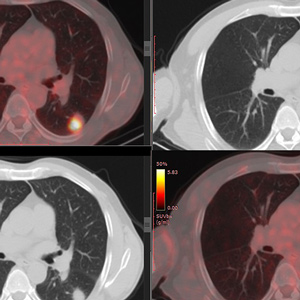-
When Young Adults Need Care
For adolescents and young adults who have been diagnosed with cancer, caregivers can play an influential—but often overlooked—role in providing help and support.
by Carly Flumer
-
Roadblocks to Care
Some cancer patients struggle to find transportation to their appointments. The coronavirus pandemic has further limited options for patients looking for rides.
by Anna Goshua
-
Forward Look
Doing More With LessHypofractionation may allow patients to finish radiation treatment sooner.
by Stephen Ornes
-
Get Involved
Smiling FacesRich Nardiello seeks to bring a smile to children with cancer.
by Bradley Jones
-
Getting Serious About Depression
Cancer survivors have higher rates of depression than the general population, but many don't know help is available.
by Cameron Walker
-
Forward Look
Watch Your MouthDental screening before treatment could stave off dental emergencies.
by Nancy Averett
-
Survivor Profile
A Voice at RiskRob Paulsen has voiced hundreds of animated characters, but as he prepared to return to a beloved role, cancer threatened his livelihood.
by Bradley Jones
-
Forward Look
Scanning DisparitiesWhether lung cancer patients receive PET scans depends on race, according to a study.
by Ashley P. Taylor
-
Q&A
Ethics in PracticeRebecca Dresser explores the history and burdens of clinical trials through the lens of a cancer survivor and medical ethicist.
by Marci A. Landsmann
-
Forward Look
Support Services Help Improve Patient OutcomesStudy suggests far-reaching benefits of mental health treatment.
by Sharon Tregaskis
Cancer Talk
Biotin Supplements Can Skew Cancer Lab Results
Products containing biotin can alter lab tests for people during and after cancer treatment.
by Laura Gesualdi Gilmore
Connecting More Patients to Cancer Clinical TrialsAACR conference brings experts together to discuss strategies to reach people historically left out of cancer research.
by Eric Fitzsimmons
Treatment Combination Improves Survival in EGFR-positive Lung CancerAdding chemotherapy to targeted therapy improves outcomes for people with advanced EGFR-positive non-small cell lung cancer.
by Sandra Gordon
Lessons From 20 Years Living With CancerMultiple myeloma survivor Jonathan Gluck reflects on uncertainty, and the scientific progress that has kept him living with cancer for more than two decades.
by Eric Fitzsimmons















